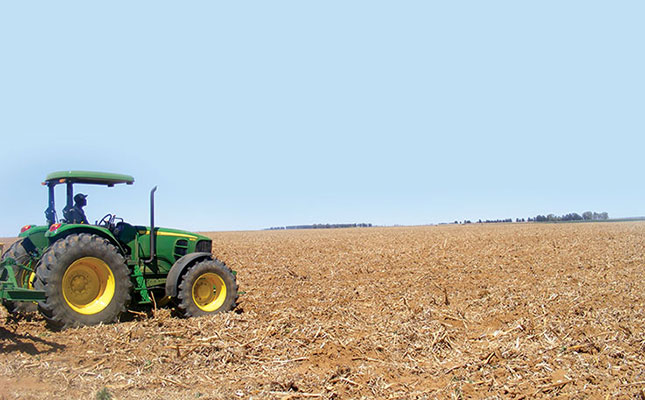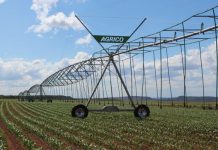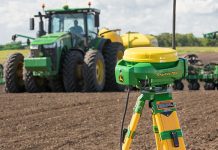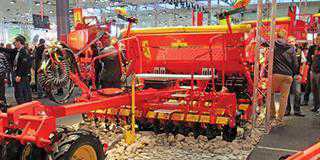
New research has pinpointed the top five causes of tractor breakdowns. EPG Global, a London-based company that provides extended warranties and other insurance backed products to, among other parties, manufacturers and dealers of agricultural machinery and equipment, analysed its extensive claims data of over 19 000 tractor repairs for the five years from 2016 to 2020 to compile its report.
According to the research, the five main causes of tractor breakdowns are the electrics, engine, external hydraulics, transmission, and operator environment.
Commenting on the report in a statement, Holly Shepherd, managing director of EPG Global, said that because modern tractors are complex, their technological sophistication can lead to electrical failures, which is why this is the number one cause of breakdowns on the list.
She added, however, that electrical components should not be considered in isolation, and that it was important to look at the vehicle as a whole.
“For example, failing to replace oil and filters can have a knock-on effect [on] other systems of the vehicle. Increasing engine performance beyond its designed specification could damage key components of the machine. If you need more performance or power, then invest in a specification that meets your demands,” said Shepherd.
Electrics
The report explains that farmers and operators can do a number of things to reduce the risk of electrical failures.
Regular servicing is essential, and not just for preventing electrical malfunctions. Manufacturers include scheduled services for a reason, which should not be ignored, says the report.
Also, in the longer term, there is the additional benefit that the resale value will be maintained. Regular servicing will also help farmers spot potential problems well in advance.
The report recommends regular visual inspections be conducted to ensure no wires or components are at risk of rubbing against or melting on hot areas, such as the exhaust. The report also suggests that only genuine parts be used for all routine and scheduled servicing and repairs, as this is crucial for the validation of extended warranty.
Engine
A number of key things to look out for to prevent engine failures is outlined in the report. It’s important to have the appropriate machine for the work that needs to be done. Therefore farmers are advised to invest in a specification that meets their demands.
It is also important to use good-quality fuel that has been stored correctly to reduce fuel-related issues, such as blockages, poor performance, higher operating costs and increased downtime.
Fill the fuel tank during the downtime storage of a seasonal machine. This reduces the risk of condensation and moisture build-up. Tractor and machinery operators are also cautioned that an immediate hot shutdown from maximum revs to zero can cause serious damage to the engine: to prevent this from happening, reduce the turbo speed and let the engine idle before keying off.
External hydraulics
A slow or sluggish hydraulics system is a sign that more serious problems may be around the corner, the report reveals, adding that it is important to act on any early warning signs and have them checked out by a trained technician. Neglecting this step could lead to a major failure or the shortening of the life of the hydraulics system and other related components.
The hydraulics system must also be kept clean. Having a clean cloth handy to give the components a quick wipe down when coupling and uncoupling a trailer will take you a few seconds and potentially save the cost of repairing the hydraulics from running into thousands.
In addition, keeping up with the correct service intervals is important for all major systems, such as the engine, transmission, hydraulics, operator environment and the electrics of the vehicle.
Transmission
The importance of adhering to the manufacturer’s recommended servicing cannot be underestimated when it comes to the transmission of your tractor, says the report.
Strictly following the schedule can help to reduce the risk of breakdowns and major failures.
A hydrostatic transmission is a high-pressure system, as the oil needs to be 100% clean. Many transmission failures are linked to oil, poor servicing and maintenance, notes the report.
Not changing the oil and filters on a regular basis might seem like a saving in the short term, but EPG Global’s data proves that this might be foolish in the long run, since a complete replacement can set you back over 100 times more than the cost of an oil change or a minor transmission repair would.
Operator Environment
Whether it’s the seat, switches, climate control or lights, these all need to be in proper working order to protect the driver. The cab’s environmental filters need to be checked and changed on a regular basis and according to the manufacturer’s manual.
Whether this means doing so annually or every 1 200 hours, it is just as important to stick to changing these as it is any other filter.
As the report says, a person’s health and well-being cannot be repaired as easily as a mechanical part.
To read the full report, visit epgglobal.com













